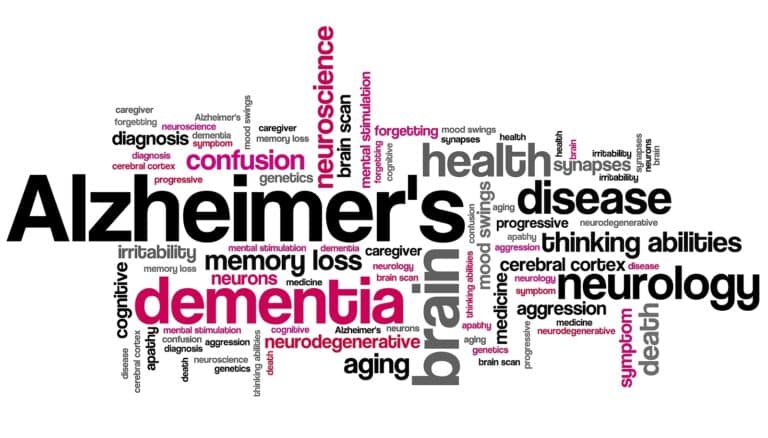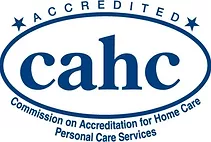Alzheimer’s disease is often confused with dementia; however, Alzheimer’s is the most common cause of dementia and accounts for 60-80% of dementia cases. Dementia is a deterioration of mental capacity that interferes with daily life, while Alzheimer’s is a progressive degenerative brain disease that occurs after brain damage and has symptoms of dementia that become more severe as the disease progresses, disrupting daily activities such as speech, walking, swallowing, etc.
It is fair to think that dementia comes with aging given that most cases of dementia are commonly developed on older adults, for that reason you should be aware of the early symptoms of Alzheimer’s and dementia.
Coping with a loved one with Alzheimer’s
Many times family members want to take care of their loved one themselves, but keep in mind that caring for a person with dementia or Alzheimer’s comes with a great responsibility not only with the patient but also with oneself, it can bring physical, psychological and socioeconomic conditions, that is why support and attention must also be provided to the caregiver and the rest of the family, it never hurts to ask for help, especially if it benefits your loved one.
It is possible to cope with the nostalgia of having lost the best memories with them by approaching with photographs or videos to bring back memories. Engage with them about memories, bear in mind that you are not forcing the person to remember, just start a friendly conversation. Be understanding that it is not their fault for forgetting things, it is the disease. Help them find the joy they once discovered in something they once loved.
As the disease progresses it becomes difficult for the patient and for those around him. The person living with Alzheimer goes through a variety of changes that sometimes they are not aware of, it might be episodes of anger, agitation, aggression, and confusion. It is important to understand where these behaviors come from and to know that your loved one does not do it with the intention of hurting you. There are ways in which one can help.
If Alzheimer’s affects you or a loved one, remember there is support available. Here are some organizations you can check out for education, support, and other resources:
• Alzheimers.gov
• Alzheimer’s Association
• National Institute on Aging
• Alzheimer’s Foundation of America
Get checked and plan properly
If you or someone you know has been diagnosed with dementia or Alzheimer or has shown the signs of early symptoms do not hesitate and contact your doctor. This gives you time to make decisions and communicate those to the right people.
Can you benefit from early intervention? Of course you can, over time the disease progresses, and it is more difficult to think clearly. Even though there is no cure for Alzheimer, an early diagnosis can prepare you for tomorrow. The benefits of getting checked are:
Medical benefits
Early medical screening can determine the cause, allowing you to:
• Access treatment options: There is no cure, but it can help with early brain deterioration, or help relieve symptoms for a time.
• Participate in clinical trials: You may be eligible and help advance research.
• Lifestyle changes can help preserve cognitive function.
Emotional and social benefits
When you have an early diagnosis, you can seek a professional to help manage the disease in the long term and navigate you and your family through the process of dealing with the changes that the disease brings. It is not an easy subject, but you can approach this situation with calm and understanding towards the person who requires help. It is also an opportunity to access support programs and spend time with the family during the process.
Time to plan the future
Knowing how this disease progresses, you can express your wishes with your family, and you will have time to update legal documents, discuss property, medical care, finances, inheritances, long term care, and end-of-life matters. This must be done while the member is still capable of making legal decisions.
Health care benefits
You can create a legal directive that will take effect if you are no longer able to do so. Doctors or caregivers can know how you want to be treated if you are dying or permanently unconscious. You can also name a trusted person who can make medical decisions for you as a “proxy.” To find more detailed information on planning click here.
REMEMBER YOU ARE NOT ALONE
Resources:
https://www.alz.org/alzheimers-dementia/10-steps
https://www.alzheimers.gov/life-with-dementia/planning-after-diagnosis#long-term-care-planning
https://www.healthline.com/health/alzheimers/how-to-deal-with-alzheimers-as-a-family-member#the-impact
- Home Care Assistance Can Help Seniors Manage Self-Care Tasks - April 24, 2025
- The Superfood You Shouldn’t Miss - April 9, 2025
- First Home Care Visit? Here’s The Inside Scoop - April 9, 2025


